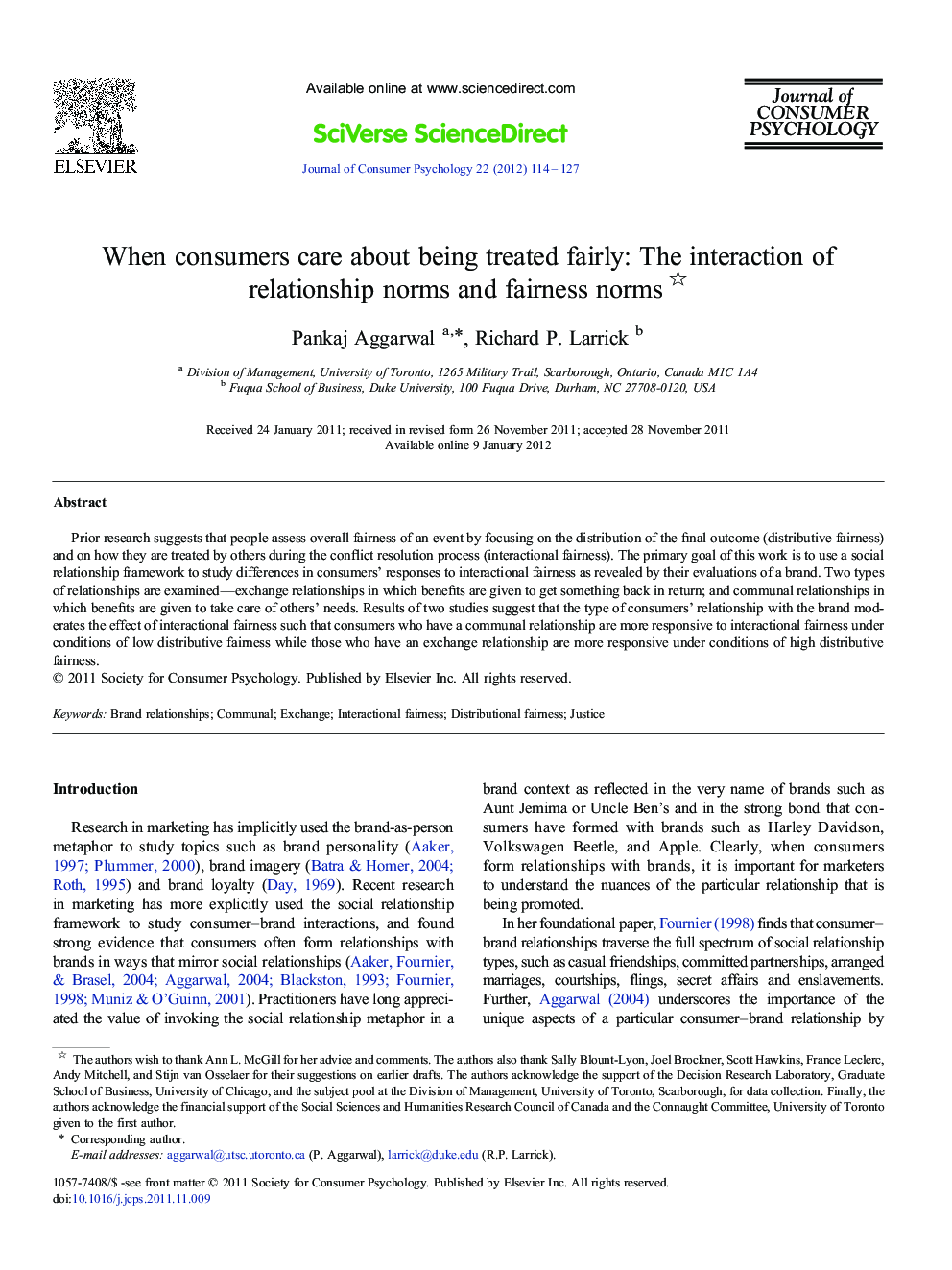| Article ID | Journal | Published Year | Pages | File Type |
|---|---|---|---|---|
| 882236 | Journal of Consumer Psychology | 2012 | 14 Pages |
Prior research suggests that people assess overall fairness of an event by focusing on the distribution of the final outcome (distributive fairness) and on how they are treated by others during the conflict resolution process (interactional fairness). The primary goal of this work is to use a social relationship framework to study differences in consumers' responses to interactional fairness as revealed by their evaluations of a brand. Two types of relationships are examined—exchange relationships in which benefits are given to get something back in return; and communal relationships in which benefits are given to take care of others' needs. Results of two studies suggest that the type of consumers' relationship with the brand moderates the effect of interactional fairness such that consumers who have a communal relationship are more responsive to interactional fairness under conditions of low distributive fairness while those who have an exchange relationship are more responsive under conditions of high distributive fairness.
